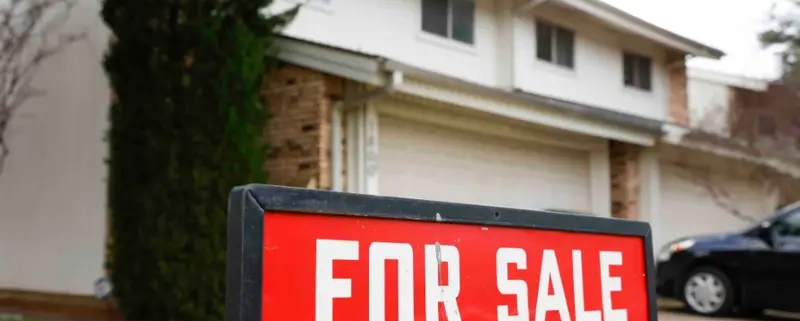A guide to selling your Dallas home for the best price
Selling your Dallas home is a significant undertaking, and maximizing its value is a common goal for homeowners. The dynamic real estate market in Dallas requires a strategic approach to ensure that your property stands out and attracts the best offers. In this comprehensive guide, we’ll navigate the intricacies of selling your Dallas home for the best price, covering everything from preparation and marketing to negotiation and closing.
Understanding the Dallas Real Estate Landscape:
Before embarking on the journey of selling your home, it’s crucial to have a deep understanding of the local real estate landscape. Dallas boasts a diverse range of neighborhoods, each with its unique charm and characteristics. Factors such as market trends, buyer preferences, and economic conditions can influence the selling process. Familiarizing yourself with the current state of the Dallas real estate market sets the stage for informed decision-making.
Preparation: The Key to a Successful Sale:
Preparing your home for sale is a crucial step in maximizing its value. Start with a thorough assessment of your property, identifying areas that may need attention or enhancement. Consider both the interior and exterior aspects, addressing issues such as curb appeal, home maintenance, and potential repairs. Investing in professional home staging can significantly impact a buyer’s perception, making your property more appealing and potentially increasing its market value.
Strategic Pricing Strategies:
Determining the right asking price for your Dallas home requires a delicate balance. Overpricing can deter potential buyers, while underpricing may lead to missed opportunities for maximizing returns. Work closely with a qualified real estate agent who can conduct a comparative market analysis (CMA) to assess the value of your property in relation to similar homes in the area. This data-driven approach ensures that your pricing strategy aligns with current market conditions, increasing the likelihood of attracting serious buyers.
Effective Marketing Techniques:
In the digital age, effective marketing is a game-changer in the real estate industry. Utilize a multi-faceted marketing strategy that leverages both online and traditional channels. High-quality photographs, engaging property descriptions, and virtual tours can enhance your online listings, capturing the attention of potential buyers. Consider social media platforms, targeted advertising, and networking within the real estate community to expand your property’s visibility.
Curb Appeal and First Impressions:
First impressions matter, and the exterior of your home sets the stage for a potential buyer’s experience. Enhance curb appeal by ensuring that the front yard is well-maintained, landscaping is tidy, and the exterior of the house is clean and inviting. Fresh paint, well-kept entryways, and attractive outdoor spaces create a positive first impression, increasing the chances of attracting serious buyers.
Showcasing Interior Spaces:
Once potential buyers step inside, the interior presentation becomes paramount. Declutter and depersonalize living spaces to allow buyers to envision themselves in the home. Consider minor updates, such as a fresh coat of neutral paint, modern fixtures, and well-maintained flooring. Highlight the unique features of each room, emphasizing the functionality and versatility of the living spaces.
Open Houses and Private Showings:
Balancing open houses and private showings is an essential aspect of the selling process. Open houses create opportunities for a broad range of potential buyers to explore your property, while private showings cater to more focused and serious prospects. Work with your real estate agent to schedule these events strategically, ensuring that your home is presented in its best light to a diverse audience of potential buyers.
Negotiation Strategies:
Receiving an offer is an exciting milestone, but the negotiation phase is where the final deal takes shape. Be prepared to negotiate on terms such as price, closing date, and potential contingencies. Your real estate agent plays a crucial role in representing your interests and navigating the negotiation process. Stay flexible, consider the bigger picture, and be open to finding common ground to secure the best possible deal for both parties.
Navigating the Closing Process:
As the negotiation reaches a successful conclusion, the closing process unfolds. This phase involves a series of legal and financial steps, including inspections, appraisals, and finalizing the necessary paperwork. Stay informed and work closely with your real estate agent and legal professionals to ensure a smooth and efficient closing process. Address any outstanding issues promptly to avoid delays and complications that could impact the final sale.
Post-Sale Considerations:
After the sale is finalized, there are several post-sale considerations to address. Ensure a seamless transition by coordinating the move-out process, transferring utilities, and addressing any outstanding tasks outlined in the sales agreement. Additionally, consider leaving a positive impression by providing information on local amenities, schools, and community resources for the new homeowners.
Selling your Dallas home for the best price requires a combination of strategic planning, effective marketing, and a keen understanding of the local real estate market. By investing time and effort into preparation, pricing, and presentation, you can maximize the appeal of your property and attract serious buyers. Collaborate closely with a qualified real estate agent who understands the nuances of the Dallas market, guiding you through each step of the selling process. With a well-executed strategy and attention to detail, you can navigate the complexities of selling your Dallas home and achieve a successful and rewarding transaction.
















Leave a Reply
Want to join the discussion?Feel free to contribute!